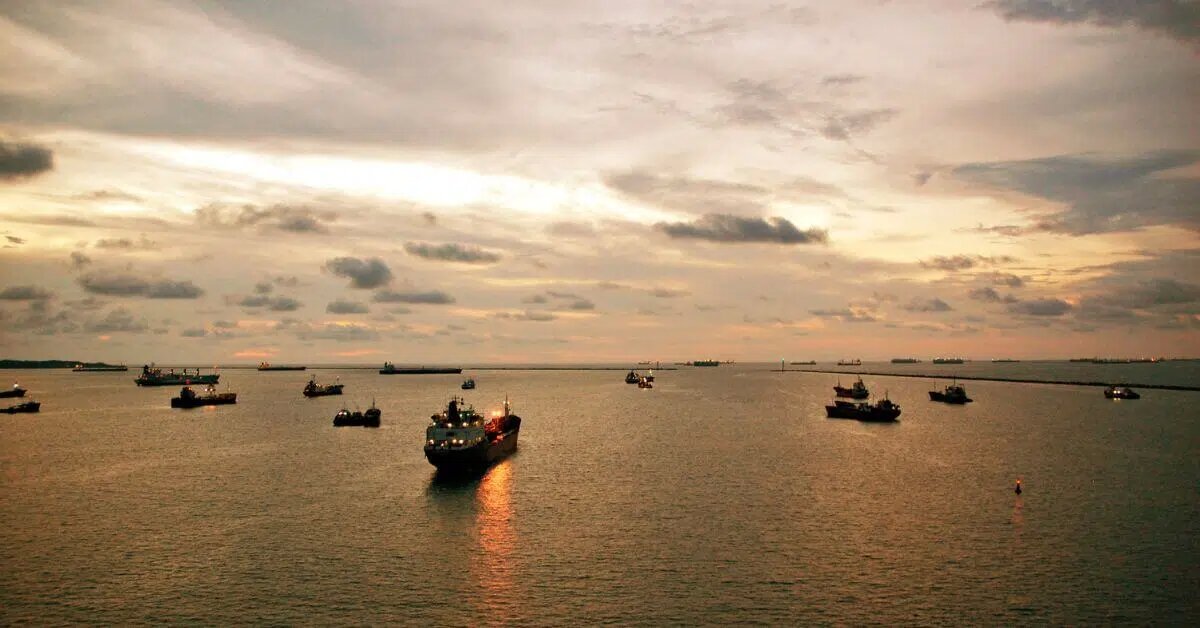The World Shipping Council (WSC) has released its annual Containers Lost at Sea report, showing that 576 containers were lost at sea in 2024.
According to the World Shipping Council while this represents an increase from the record-low 221 containers lost in 2023, it remains well below the 10-year average of 1,274 containers lost annually, underscoring continued industry progress on safety and prevention.
Furthermore, the detour of shipping routes away from the Red Sea meant a large increase in traffic around the Cape of Good Hope. This region is known for its hazardous conditions due to the convergence of weather systems, creating unpredictable and steep wave patterns. As a result, vessel transits around the Cape of Good Hope increased by 191% compared to 2023.
However, this area is well-known for hazardous maritime conditions, which contributed to a concentration of losses. The South African Maritime Safety Authority says around 200 containers were lost in this region alone.
Despite continued loss-prevention efforts by the industry, the re-routing of transits away from the Red Sea and around the Cape of Good Hope to keep global commerce moving has ocean carriers navigating one of the world’s most challenging routes.
Despite continued loss-prevention efforts by the industry, the re-routing of transits away from the Red Sea and around the Cape of Good Hope to keep global commerce moving has ocean carriers navigating one of the world’s most challenging routes.
…said Joe Kramek, President & CEO, World Shipping Council.
The number of container losses at sea have fluctuated significantly over the 17 years WSC has tracked data, with some extreme outliers skewing the historical average.
The most notable spike occurred in 2013, when 5,578 containers were lost—by far the highest in the dataset and heavily impacted by one incident of total vessel loss. Other years with elevated loss figures include 2020 (3,924) and 2021 (2,301), which were periods marked by several large-scale incidents that prompted industry-wide concern and triggered a research project, TopTier, into the key causes and potential actions to address container loss.
In contrast, 2023 saw a significant reduction with 221 containers lost. In 2024, the total rose to 576 containers, well below the 10-year average of 1,274 and making it one of the lowest annual totals recorded in the past decade. The rolling three-year average covering 2022–2024 is 489, down from 1,061 in the last report covering 2021–2023.
While 2024’s reported losses represent an increase from the previous year, the 2024 figure remains consistent with the overall downward trend. For the second time, container recoveries are included in WSC’s annual reporting. In 2024, two containers were recovered.
Mandatory container loss reporting to the International Maritime Organizations starts in 2026
As a longtime advocate for mandatory reporting of containers lost at sea, World Shipping Council welcomed the adoption of amendments to the International Convention for the Safety of Life at Sea (SOLAS) by the International Maritime Organization’s (IMO) Maritime Safety Committee (MSC 108). The entire industry must now report all containers lost at sea starting January 1, 2026.
Industry project researching solutions to prevent container loss to conclude this year
The World Shipping Council, as a key participant in the Top Tier Joint Industry Project (JIP). Launched in July 2021 and led by the Maritime Research Institute Netherlands (MARIN), the TopTier initiative brings together over 40 stakeholders including flag states, shipping companies, classification societies, and equipment manufacturers.
Major progress has been made identifying the main reasons for container losses, developing tools and training to help ocean carriers and seafarers prevent incidents, as well as recommendations to IMO for regulations and to the ISO for standards that would significantly enhance container safety. The project has now come to an end, but will submit a final report with actionable recommendations to IMO (CCC 11 in September).
WSC Cargo Safety Program to flag /undeclared dangerous goods to prevent ship fires and container loss
Ship fires can endanger crew and cause loss of cargo or even the loss of an entire vessel. Recent reports have shown that a leading cause of these fires is /undeclared dangerous goods.
To address the risk of container fires on ships, WSC in partnership with the National Cargo Bureau (NCB), has developed the WSC Cargo Safety Program – introducing the first-ever industry-wide best practices for cargo screening and inspections.
Charcoal shipment regulations are changing to make transportation safer, protecting crew and cargo
To further tackle the issue of ship fires, the shipping industry is taking proactive steps to implement improved safety measures for transporting charcoal, in advance of the mandatory IMO regulations coming into effect in 2026. The new regulations require all charcoal shipments to be declared as dangerous goods under the International Maritime Dangerous Goods (IMDG) Code.





